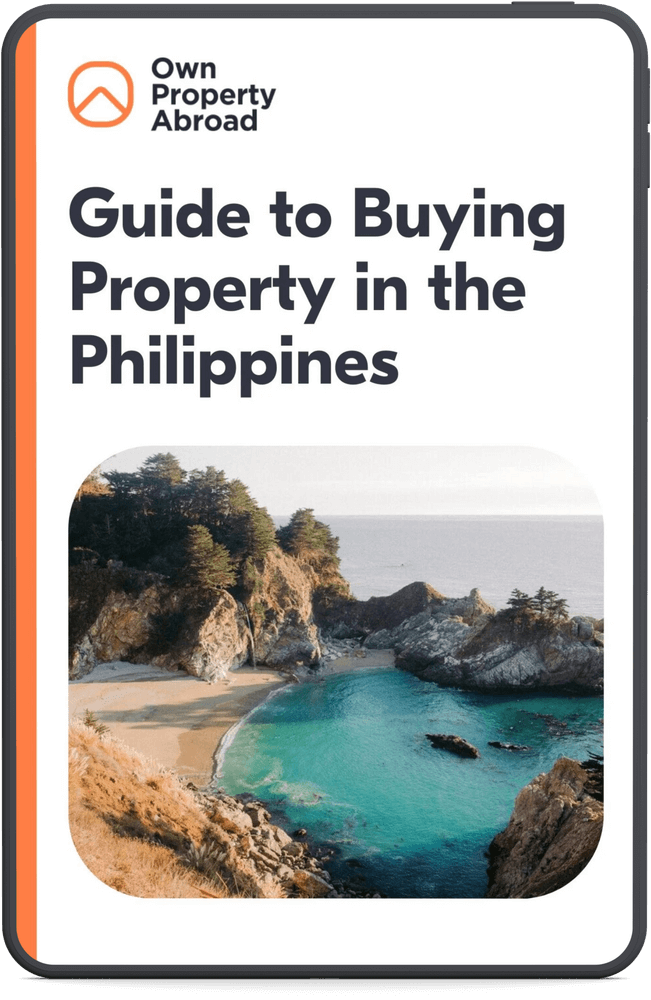How much do you need to buy a house in the Philippines?
Several factors affect the price of a house in the Philippines, such as the location, kind of property, amenities offered, and market state. Approximately the average price of a property is ₱ 74,104 ($1,296) per square meter. An investor can anticipate spending or getting loans for foreigners in the Philippines between ₱ 3.5 million ($61,215) and ₱ 5 million ($87,450) on the typical scale of homes in the market, which range from compact to moderately spacious residences.
What mortgages in the Philippines are available to foreigners?
Foreigners looking to purchase property in the Philippines have various mortgage options available from local and international banks. These mortgages cater to various needs and preferences, offering fixed and variable-rate loans for foreigners in the Philippines. For example, BPI home loans provide fixed-rate mortgages with rates that typically increase over longer periods. However, at the end of the term, the loan reverts to the BPI home loan basic interest rate, which may not always be favorable for the borrower.
With the array of loans for expats in the Philippines, potential borrowers must conduct thorough research on the different banks’ offerings, as they can vary significantly. Some mortgage products are specifically designed for expatriates looking to purchase commercial properties. In contrast, others might be more appropriate for investing in residential properties, such as a buy-to-let or a vacation home. It underscores the importance of choosing a well-matched foreign loan with one’s financial objectives and the type of property being considered.
Where to get house loans for foreigners in the Philippines?
There are various ways to get a house loan in the Philippines; each has advantages and disadvantages based on your specific requirements. Although going straight to banks is a popular strategy, using a mortgage broker can have several benefits, particularly if you’re not sure which kind of foreign loan would be best for you. Brokers may charge more for their services, but they ensure you get the best bargain possible. A good substitute for people who are uncomfortable with brokerage fees is to use websites that compare mortgages and house loans for foreigners in the Philippines.
Platforms for house loans for expats in the Philippines can provide a thorough summary of the current rates offered by several banks, enabling you to make an informed choice before speaking with the banks directly about your particular qualifying needs. But it’s important to pay attention and not fall for con artists posing as brokers, especially if they want payment in advance. Locating a reliable mortgage agent may help by requesting references from prior customers or getting referrals from friends and family.
Requirements to get a mortgage in the Philippines as a foreigner
The banking organizations require additional paperwork for house loans for foreigners in the Philippines. Though different banks might have specific preferences, here are the common requirements to get a mortgage in the Philippines as a foreigner:
- Alien Certificate of Registration (ACR): ACR is your official identification that proves your legitimacy in engaging in financial dealings and expat loans within the country.
- Valid passport copies: Banks will request copies of your passport exhibiting your details, photo, and the visa underpinning your legal right to reside in the Philippines, which is crucial for affirming your identity.
- Residency evidence: Demonstrating that your residency in the Philippines is authorized; this typically involves providing a rent contract or corresponding utility bills.
- Income proof: Lenders will want to ensure you have sufficient financial resources to honor the mortgage terms. Presenting proof, such as employment certification or financial statements, will be necessary to verify your income when getting mortgage loans for expats in the Philippines.
In addition, if your documents are not already in English or Filipino, you’ll need them officially translated. Hiring the expertise of a certified sworn translator is important, as it makes the documents valid and understandable for the bank’s due diligence process in getting house loans for foreigners in the Philippines.

How can foreigners get a mortgage in the Philippines?
Getting mortgage loans for foreigners in the Philippines involves navigating through a series of steps and meeting certain requirements. Here are eight steps on how can foreigners get a mortgage in the Philippines:
Step 1: Connect with a property broker
Begin by finding a real estate broker who is well-versed in the Philippine real estate market. This expert will help you navigate the mortgage options for loans for foreigners in the Philippines and guide you through the application process, offering invaluable assistance in understanding the nuances of international property investment.
Step 2: Bank selection
Examine various banks to identify one that offers cash loans in the Philippines with rates and terms compatible with your financial situation. Your broker can be a vital resource, helping compare offers from different loans for foreigners in the Philippines.
Step 3: Completing the mortgage application
Choose your bank and supply all the required details for your mortgage application, which often includes financial documentation and personal identification. Banks might provide an online application option. Expect to receive a provisional loan agreement after your application is processed.
Step 4: Searching for the property
Now that you have an initial mortgage approval, you can look for the property that fits your vision. When you find it, negotiate the sale price with the seller until you reach an agreement.
Step 5: Securing the mortgage
Take your agreed purchase price back to your mortgage broker, who will then assist you in locking down the specifics of your expat loans based on the property’s sale price.
Step 6: Paying the down payment
A typical requirement to move forward with the property purchase is paying a deposit, usually about 20% of the total property value. This signifies good faith to the seller and the lending bank.
Step 7: Handling the legal aspects
The property’s legal transfer is a critical step. A legal notary will guide you through the necessary property ownership transfer processes, ensuring your purchase conforms to Philippine legal standards.
Step 8: Final purchase arrangements
The last step is to finalize the real estate purchase by paying off the remaining amount (usually 80%) covered by your cash loans in the Philippines.
What are the easiest banks to get a mortgage in the Philippines?
Securing loans for foreigners in the Philippines to buy a property can be a smooth process with the right bank. Here are five easiest banks to get a mortgage in the Philippines:
- EastWest Bank: Sets itself apart with the longest loan term available, up to 30 years. The extended repayment period makes monthly dues more manageable, which could be a big plus for borrowers looking for flexibility and a lower monthly financial impact.
- China Bank: Offers enticing terms with up to 25 years for repayment of loans for foreigners in the Philippines. The quarter-century mark on their loans also means spreading payments to reduce monthly stress on your wallet.
- Sterling Bank of Asia: Allows a repayment period of 25 years of mortgage loans for expats in the Philippines. This extended term can benefit those who anticipate a steady income over a longer period and prefer to keep their monthly dues low.
- Union Bank: Provides up to 90% of the appraised value of your collateral. This high percentage of financing can significantly lower the down payment required, easing the initial financial burden for homebuyers.
- HSBC Philippines: Caters to borrowers looking for a significant loan amount with terms of up to 20 years and loan amounts reaching up to ₱ 50 million ($874,500) at competitive rates. This is ideal for high-value property investments.
Buy property in the Philippines with Own Property Abroad
Are you looking to buy property in the Philippines? Own Property Abroad is here to assist you, ensuring a smooth and hassle-free property journey, whether you’re selling or buying real estate in the Philippines. Our extensive knowledge and experience in the local market enable us to guide you through legal requirements, find the perfect properties and loans for foreigners in the Philippines, negotiate the best deals, and conduct thorough due diligence.
With our expert team by your side, you won’t have to navigate the complexities of the Philippine real estate market alone. For more information on how we can assist you, please leave your details below or email us at [email protected]. Let’s begin your property success story today!
Frequently Asked Questions (FAQs)
Can a foreigner buy a house in the Philippines?
Foreigners can buy a house in the Philippines up to 40% and sometimes through long-term leases with Filipino landowners.
What are the cheapest home loan rates in the Philippines?
The cheapest home loan rate in the Philippines is 5.25% for a 1-year fixing period, depending on the bank.
Where to borrow money in the Philippines?
You can borrow money from banks in the Philippines through government financial institutions, online lending platforms, and microfinance institutions.
Can expats get a loan in the Philippines?
Expats can get a loan in the Philippines, but options are limited to a few banks that demand a significant history of residence and income in the country.
What are the Philippines’ mortgage rates?
The Philippines’ mortgage rates range from 5.25% to 7.00% for a 1-year fixing period and can go up based on the fixing period and the specific bank’s offer.







6 Responses
Can I get a loan anywhere without a ACR resident? Only have ACR tourist
It is generally difficult to secure a loan in the Philippines without an ACR I-Card that reflects permanent or resident status. An ACR tourist card typically does not provide the necessary credibility for financial institutions to extend loans. It’s advisable to consider converting to a more permanent status if you plan to pursue financial services like loans.
How do you convert from tourist acr to permanent acr?
Hi Maria,
To convert from a tourist ACR to a permanent ACR, you must apply for the relevant visa, such as a 13A spouse visa or SRRV for retirees. Once granted, you can request a permanent ACR-I card at the Bureau of Immigration in the Philippines.
As a 70 year old retiree here in U.S.A. Can we get mortgage loan? and what are the requirement? Thanks
Hi, as a 70-year-old retiree in the U.S., getting a mortgage loan is possible, but lenders typically evaluate your eligibility based on your fixed income (like Social Security, pensions, or investments), your credit score, and the value of the property you wish to buy. Some lenders offer specific programs for retirees, while others may accept asset-based loans if your retirement savings are substantial. Let me know where you’re planning to buy, and I can guide you further on available options and requirements.